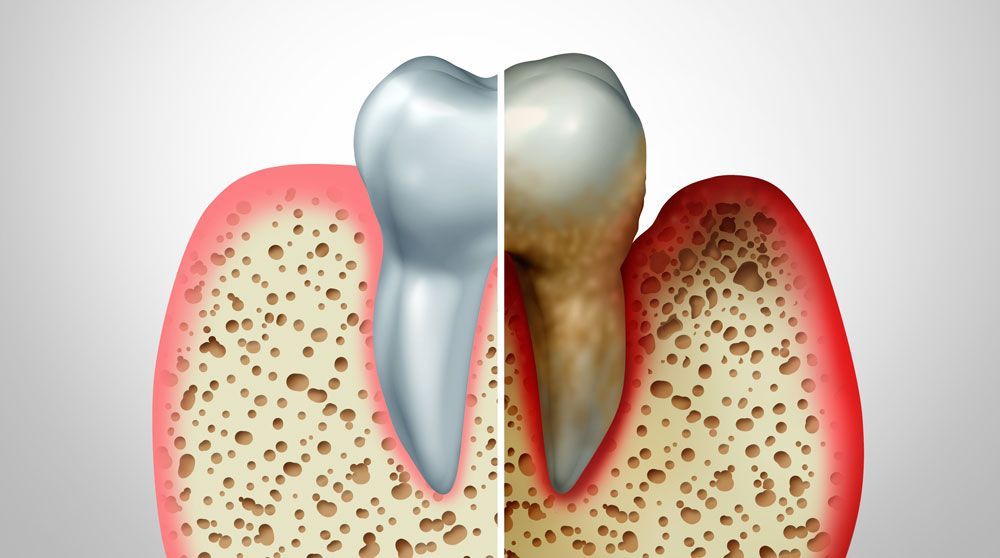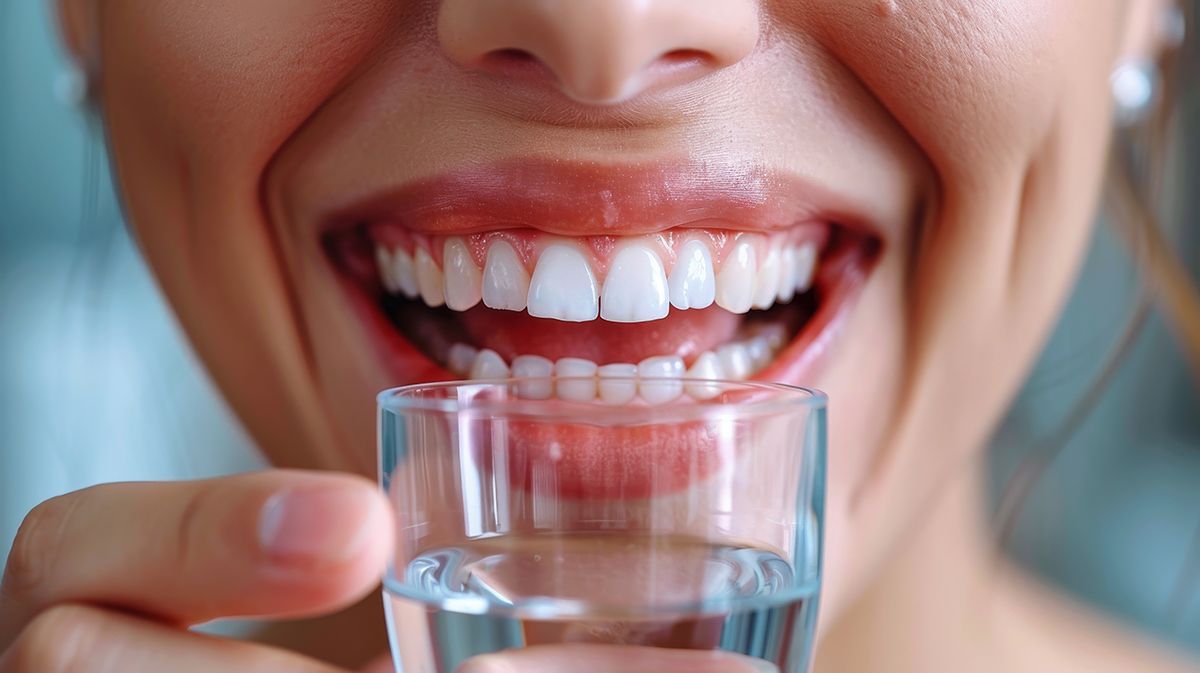How to treat gum disease
Gum disease, also known as periodontal disease, is a common oral health issue that affects a significant portion of the population. This condition can have serious consequences for your health, potentially leading to tooth loss and other complications. In this comprehensive guide, here at Oadby Dental Clinic we will explore what gum disease is, how to identify its symptoms, and most importantly, how to treat and prevent it both at home and with the help of a dentist.
What is gum disease?
Gum disease is a bacterial infection that affects the tissues surrounding and supporting the teeth. It typically starts with the accumulation of plaque, a sticky film of bacteria, on the teeth. If not properly removed through regular oral hygiene practices, plaque can harden into tartar, leading to inflammation and infection of the gums. As the condition progresses, it can damage the bone supporting the teeth, causing them to loosen.
What does gum disease look like?
Recognising the signs of gum disease is crucial for early intervention.
Common symptoms include:
- Bleeding gums
Healthy gums should not bleed during brushing or flossing. If you notice blood, it may be a sign of gum inflammation.
- Swollen or red gums
Inflammation caused by infection can result in redness and swelling of the gums.
- Persistent bad breath
The bacteria associated with gum disease can produce unpleasant odors, leading to chronic bad breath.
- Receding gums
As gum disease progresses, the gums may pull away from the teeth, exposing the tooth roots.
- Sensitive teeth
Increased sensitivity to hot or cold temperatures can indicate gum recession and potential nerve exposure.
How to treat gum disease at home
While professional dental intervention is essential, there are steps you can take at home to manage and improve gum health:
1/ Proper oral hygiene
Brush your teeth at least twice a day using fluoride toothpaste and a soft-bristled toothbrush. Floss daily to remove plaque and debris between teeth.
2/ Antiseptic mouthwash
Rinse with an antiseptic mouthwash to reduce bacteria and help control plaque.
3/ Saltwater rinse
Gargling with warm saltwater can soothe irritated gums and help reduce inflammation.
4/Healthy diet
A balanced diet rich in vitamins and minerals supports overall oral health. Limit sugary and acidic foods, as they can contribute to plaque formation.

How do you know if you have gum disease?
Regular self-examination and awareness of symptoms are essential in identifying gum disease. If you experience any of the aforementioned symptoms, it's crucial to consult us here at Oadby Dental Clinic promptly. Professional assessment and diagnosis will determine the severity of the condition and the appropriate course of action.
What toothpaste is best for gum disease?
We often get asked this in clinics - Selecting the right toothpaste is vital for managing gum disease. Look for toothpaste with fluoride to strengthen enamel and ingredients like triclosan or stannous fluoride that help fight bacteria. However be sure to consult us at your next appointment for recommendations based on your specific oral health needs.
What is the best mouthwash for gum disease?
Antiseptic or antimicrobial mouthwashes can help control bacteria and reduce plaque. Look for products containing chlorhexidine, cetylpyridinium chloride, or essential oils like tea tree oil. Nevertheless, again - consult to determine the most suitable mouthwash for your specific needs.
Can you have dental Implants with gum disease?
In many cases, gum disease must be addressed and managed before considering dental implants. Healthy gums and adequate bone support are crucial for the success of implant procedures. At Oadby Dental Clinic, we will assess your oral health and recommend appropriate treatments before proceeding.
What can gum disease lead to?
Untreated gum disease can have serious consequences, including:
Tooth Loss
Progressive damage to the supporting structures of the teeth may lead to tooth loss.
Systemic health issues
Gum disease has been linked to systemic health problems, including heart disease, diabetes, and respiratory issues.
Chronic inflammation
Persistent inflammation associated with gum disease can affect overall well-being.
Gum disease is a common yet preventable oral health issue. By adopting a proactive approach to oral hygiene and seeking timely professional care, you can effectively manage and treat gum disease. Remember to maintain regular dental check-ups, practise good oral hygiene habits at home, and consult
Oadby Dental Clinic for personalised guidance on maintaining optimal health. Taking these steps will not only protect your smile but also contribute to your overall well-being and future.
Suffering from symptoms of gum disease?
Book an appointment today!



